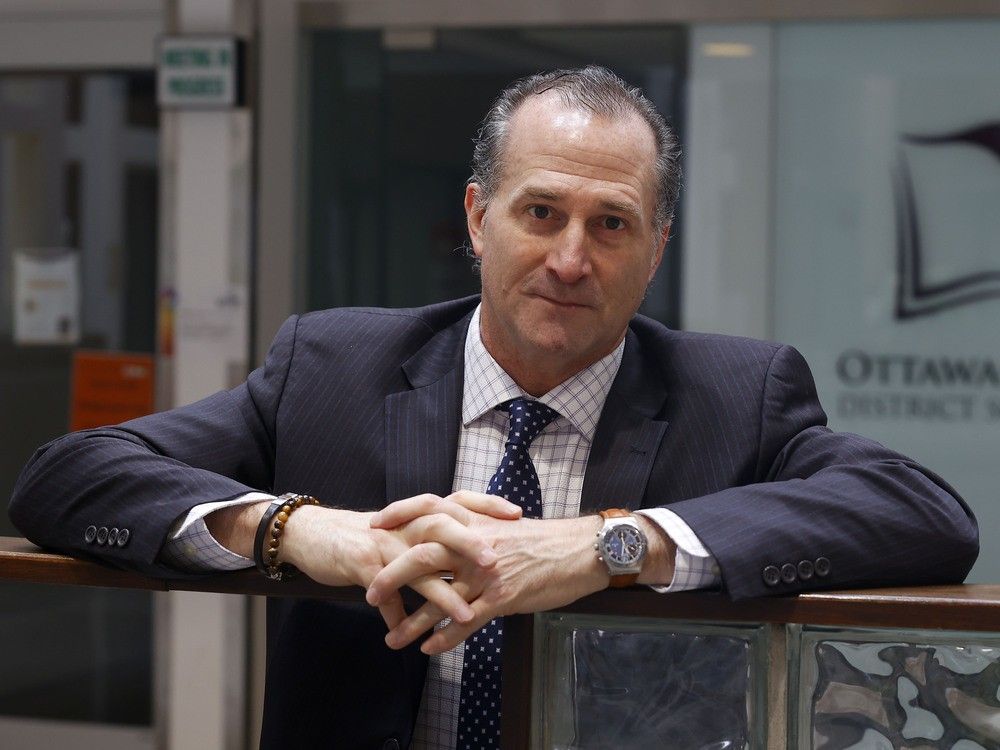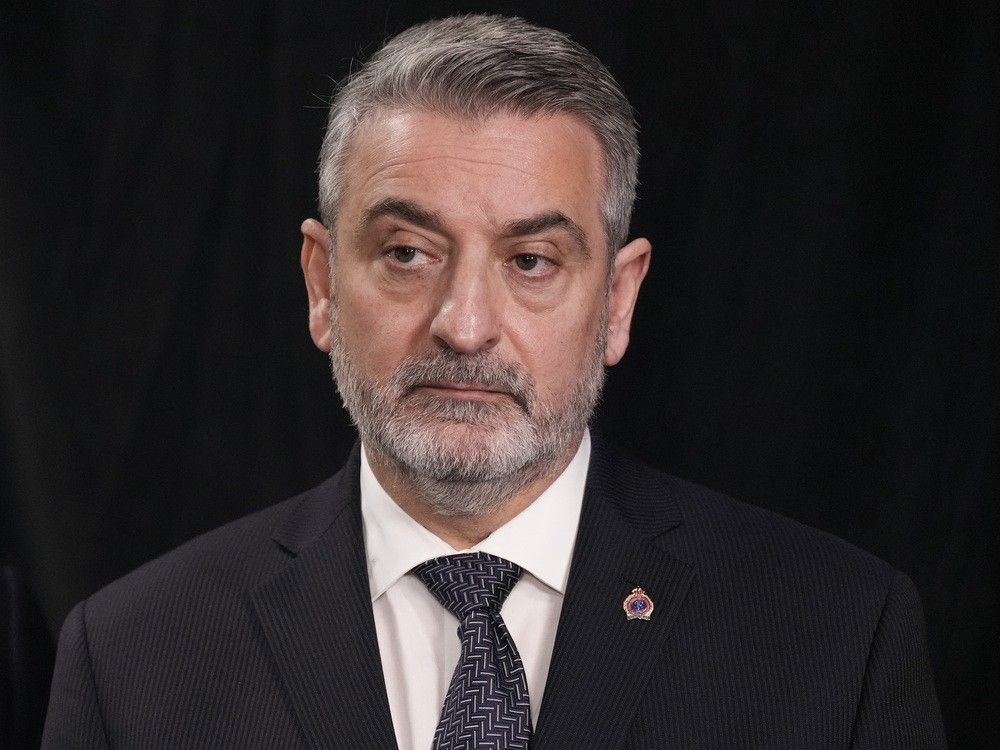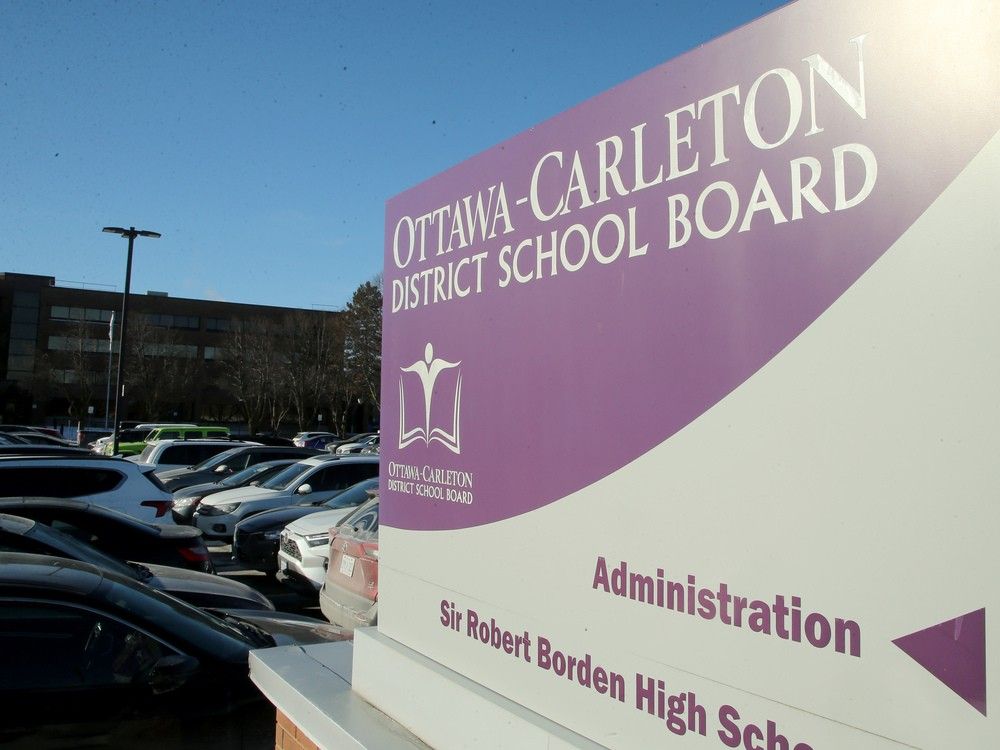The Province of Ontario has appointed an investigator to probe the finances of the Ottawa-Carleton District School Board.
By the end of May, that investigator is to present the findings to Education Minister Paul Callandra.
The OCDSB is one of five Ontario school boards under review. In the wake of a controversial elementary program review, the investigation will bring new pressure on the school board, which has a total budget of about $1.2 billion and has had deficit budgets for four years in a row.
“Further actions will be taken if the situation at these school boards does not improve,” Callandra said.
Here’s what could happen.
Being under investigation does not sound auspicious
It’s not. The province holds all the cards.
The OCDSB used up surplus funds to finance previous deficit budgets in 2021-22 and 2022-23 and had an unexpected deficit last year. The board still owes the province $11.1 million from last year’s deficit, and that’s not the end of it. As of January, OCDSB still had to cover a $4.2-million shortfall by the end of this school year. Whatever is left over will be added to the board’s growing tab with the province.
Under the Ontario Education Act, school boards must produce balanced budgets. If that does not happen, the province may appoint an investigator to review the financial and administrative affairs of a school board, reporting to the education minister.
If the investigator’s report is unfavourable, the education minister may appoint a supervisor to take administrative control of the board, with authority to take whatever action the supervisor believes is necessary to manage school board affairs.
What’s the difference between being under investigation and being under supervision?
In this case, the investigator will “validate the school board’s current financial position and recommend whether control and charge of the board should be vested in the ministry,” the Ministry of Education says.
Supervision will only happen if recommended by the investigator.
“Supervision is a pretty drastic option to take,” said Riley Brockington, now a city councillor after serving two terms as an OCDSB trustee starting in 2003.
Being under supervision has implications for local democracy. Local governance is reduced, leaving all decisions to the supervisor appointed by the province, he said.
“You don’t want supervision because you have a reduction of local accountability.”
In 2002, when the OCDSB was last under supervision, trustees didn’t want to take ownership of cuts that were necessary to balance the budget, said Brockington, who was elected as a trustee just after supervision was lifted.
At the time, there was also concern that the province had a longer-term agenda of replacing the elected school board with an appointed board, he said.
That possibility hasn’t disappeared. In 2018, Nova Scotia dissolved elected school boards. School governance is managed by advisory councils appointed by the provincial government instead of school boards.

Why was the OCDSB under supervision before?
Under Mike Harris’ Conservative government, the province and cash-strapped school boards were battling over who had control of education.
In 1998, the province took away school boards’ taxation powers. Ottawa always had a strong tax base. That led to the expectation that education extras could always be provided for by raising taxes. The school board spent its last $20 million in reserves in 2001-2002. The following year, it faced trimming $26 million and submitted a deficit budget.
The province sent forensic auditor Al Rosen to Ottawa to check the books. Rosen’s report blamed trustees for the shortfall, saying they had “self-inflicted” their own financial pain, and recommended the province appoint a supervisor.
In August 2002 Merv Beckstead, the pragmatic and plain-spoken former chief administrative officer for the former Regional Municipality of Ottawa-Carleton and the City of Nepean, was appointed to supervise the OCDSB. He became a lightning rod for parents and opponents of the Harris government. Junior kindergarten, transportation and special education were on the chopping block, but the most emotional discussions were about closing schools.
Failing to close schools had resulted in the school board losing millions in grants, Beckstead reflected in a 2003 op-ed he wrote for the Ottawa Citizen.
“Many trustees apparently refuse to acknowledge the instability and uncertainty they have created by failing to make organization changes, in areas for which they have control, to maximize quality operational effectiveness and efficiency, and to maximize funding eligibility,” Beckstead wrote.
There were major cuts to other Ontario school boards under supervision. The supervisor of the Toronto District School Board recommended $90 million in savings in a budget that included no money for teacher salary increases.
There were reasons to freak out in Ottawa. One consultant’s report recommended that the OCDSB close 58 schools over 15 years. That didn’t happen.
There were court cases, including one in Ottawa, where education activists tried to get Beckstead’s appointment overturned, claiming that appointing a supervisor was unfair, unlawful, discriminatory, arbitrary and “offends to values of democracy inherent in the Canadian Constitution.”
They lost.
Did anything good come of it for schools?
The process forced the province to acknowledge that underfunding of education was an issue. Beckstead had to borrow $13.9 million.
A 2002 report by Mordechai Rozanski, president of the University of Guelph, recommended a $1.8 billion cash infusion over the next three years.
The province responded with $250 million for special education over two years. Two days after Rozanski’s report landed, another $340 million was announced to settle teachers’ contracts. Three days later, there was $20 million more for transportation.
The OCDSB received $20 million out of the total cash infusion.
Are schools currently underfunded?
The Ontario government says it has invested more than $29 billion in total education funding for the 2024-25 school year.
However, according to analysis by the Ontario Public School Boards Association released earlier in May, there’s a funding gap of more than $1 billion.
Actual per-pupil funding from the province is increasing a small amount from $13,584 to $13,834, an increase of $250 or 1.8 per cent compared to last year. In 2018, per pupil funding was $12,282.44.
Funding increases do no take inflation into account, the analysis said.
“Funding, when adjusted for inflation, now sits at $11,506.03, a gap of $776.41 per student. This is the lowest level of per pupil funding in more than 10 years.”

Critics have grumbled that the controversial elementary program review was aimed at saving money. Is this the case?
That’s not the stated objective, but it will probably help. However, even if the review produces savings, they would be a drop in the bucket compared to what’s needed. The cost-cutting is not over yet.
OCDSB director of education Pino Buffone told trustees earlier in May that the education ministry had spoken to school board representatives for years about structural issues, including running multiple tracks at the elementary level being “an impossible reality.”
The board is spreading itself too thin and needs to streamline to two program offerings, English and French immersion, Buffone said.
“We need to get smarter with our resources, mobilize them ore effectively,” he told trustees. “We’re not taking any money from this review and putting it in our back pocket. We are remobilizing what we have to serve students better than when we load schools in multiple tracks.”
The school board has been “distracted by a series of other things,” Buffone said. “We are an organization that has taken away from our core business, and we have strayed.”

What are the signals from Queen’s Park?
Minister of Education Paul Calandra has not minced words, saying the province will be “relentless” in holding school boards accountable.
“We have been clear: Transparency and accountability from Ontario school boards is mandatory,” he said. “Further actions will be taken if the situation at these school boards does not improve. As the new Minister of Education, I will be looking at every avenue to bring more transparency, consistency and accountability to all school boards across the province.”
What does history have to say about the situation?
The investigator’s report may not lead to supervision and could lead to vindication of the argument that the board is underfunded, said Rob Campbell, who was chair of the Ottawa Carleton Assembly of School Councils when the OCDSB was last under supervision. He was later a two-term trustee.
It may depend on the investigator and how the government responds, Campbell said.
“Do they play tough with the school boards? There are a lot of political questions here,” he said. “The investigator will report, but it’s up to the province to decide what next steps to take.”
School closures are not on the table this time. In fact, the opposite is true, and there’s a moratorium on closing schools.
The report may show that inflation and other new expenses have overwhelmed provincial funding, Campbell said.
“Best-case scenario, the report may recommend more money.”
Our website is your destination for up-to-the-minute news, so make sure to bookmark our homepage and sign up for our newsletters so we can keep you informed.
Related
- Wheelchair user dies after being struck by vehicle near Ottawa Train Yards
- Ottawa’s mayor supports a new ‘bubble bylaw.’ Here’s why some councillors are opposed



